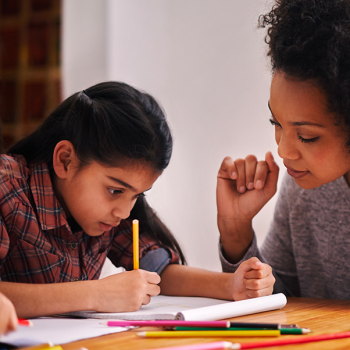
Overview | Projects | Technology | Equity | Best Practices | Webinars | For Families
Yes, You Can Facilitate PBL Remotely
The world is changing minute by minute due to COVID-19. It’s causing a range of emotions, opportunities, and challenges as we wrap our brain around this new (ab)normal.
Many of you who are new to Project Based Learning may be tempted to fall back into lecture and worksheets. Let us help you instead by sharing some ideas and resources on how to maintain your PBL culture with remote learning. The same level of inquiry, questioning, critique, reflection, scaffolding, and collaboration can still be there, albeit in a remote learning setting.
In this past month, we've been excited to hear that some students who are doing PBL at home are as or more engaged as in the classroom, and they're working more independently.
From the blog: Remote learning ideas, skills, and examples
A Message for PBL School Leaders During the Pandemic & School Closures
Four PBL Wins This Year, from My Classroom to Remote Learning
3 Ways to Help Students Improve Self-Management Skills in At-Home Learning
Senior Projects & End-of-Year PBL: Making it Public in Remote Learning
PBL + SEL + Trauma-Informed Teaching for the Times We’re In
Critique & Revision of Student Work in Remote PBL
4 Tips for Remote PBL with the “Making Space for Change” Project
I’m Still Figuring Out PBL & Now I Gotta Do Math Projects Online?!
School Closures? Using PBL in Remote Learning
Four PBL tips to remember while facilitating projects remotely

-
1. Build personal connections
PBL can only thrive when you and your students feel like you have a relationship. Remember to build those personal connections - schedule individual check-ins, celebrate successes, be transparent about your own feelings. Remember, we're all in this together.
-
2. Make time for questions
PBL is falls under the umbrella of inquiry based learning, and questions are its lifeblood. Consider how you might elicit student questions at the start of the project, and leverage those questions throughout. Celebrate clarifying questions, and those deeper probing questions. We want our students to become skilled and passionate questioners.
-
3. Build opportunities to reflect on learning throughout the project (not just at the end).
Remember, John Dewey told us that we don't learn from experience, we learn from reflecting on experience. Ask your students what they're learning, what they need to learn next, how they're growing.
-
4. Carve out time for critique and revision
Critique and revision is the key to better products in PBL, and to instilling a growth mindset in our students. In PBL, we operate under the assumptions that nothing is perfect, and feedback from others can help us improve. How will you give your students an opportunity to share their best thinking or early drafts during the project? How will you structure the conversation so it's meaningful? Who else might be able to provide your students with quality feedback?
Listen to Free Recorded Webinars on Facilitating PBL Remotely

WEBINAR: How to Adapt a Gold Standard Project for Online Learning
Trying to figure out how to engage students in intellectually challenging and meaningful work remotely. We'll walk you through how to adapt a Gold Standard project.










